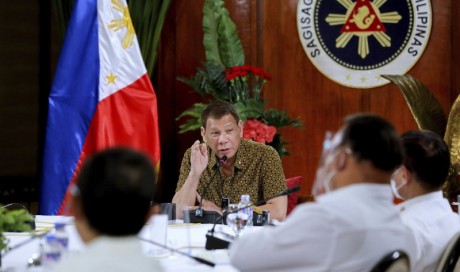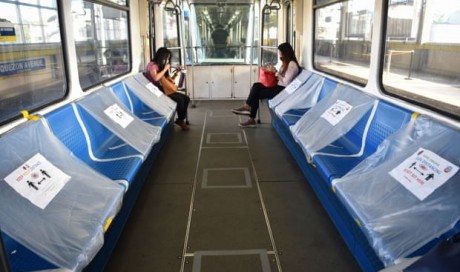One of the world’s top labor exporters
According to data from labor watchdog Migrante, there are 12-15 million Filipinos working or residing abroad.
Migrante Philippines spokesman Arman Hernando expressed unhappiness over Duterte’s call last month for all OFWs in Kuwait to return home.
“We can’t expect our OFWs to come home if the root cause of their migration — poverty due to landlessness and a lack of decent jobs — still exists and is actually worsening,” Hernando told Arab News.
It is due to the “lack of a better option that labor migration has been seen as the ticket for many Filipina workers to greener pastures,” he said, adding that the minimum wage in the country is 512 pesos ($9.78), less than half the living wage. According to Migrante, in 2017 unemployment in the Philippines rose to 9.2 percent.
Geslani said: “We’re sending more women abroad than men, with a 60:40 ratio.” Kuwait is among the top job destinations for Filipina migrants, particularly HSWs, he added.
Data released by the Philippine Statistics Authority (PSA) in April show that the number of OFWs who worked abroad at any time from April to September 2017 is estimated at 2.3 million.
Those with existing work contracts comprised 97 percent of OFWs during April-September 2017. The remaining 3 percent worked overseas without a contract. Saudi Arabia was the most preferred destination among OFWs (25.4 percent).
Remittances
According to the Central Bank of the Philippines (BSP), the growth in remittances from Filipinos abroad continues “to provide support to the country’s economy as a major driver of domestic demand.”
Personal remittances of Filipinos overseas in 2017 accounted for 10 percent of gross domestic product (GDP) and 8.3 percent of gross national income (GNI).
Data released by the BSP earlier this year showed that personal remittances from overseas Filipinos reached a record high of $3 billion in December 2017, up 7.9 percent from a year prior.
This brings cumulative personal remittances for January-December 2017 to $31.3 billion, 5.3 percent higher than the $29.7 billion in the previous year, and exceeding the BSP’s projection of 4 percent for 2017.
The bulk of cash remittances for the year came from the US, the UAE, Saudi Arabia, Singapore, Japan, the UK, Qatar, Kuwait, Germany and Hong Kong.
Combined remittances from these countries accounted for 80.1 percent of total cash remittances, according to the BSP.
Migrante, while citing the contributions of OFWs to the Philippine economy, said many of them want go home and be with their family.
But “until and unless you stop exporting them continually, and your promise of a better Philippines… is fulfilled, they’ll be forced to search for greener pastures in foreign lands, even if it’s in Kuwait or any other hostile country,” said Hernando, addressing Duterte.
Share This Post














